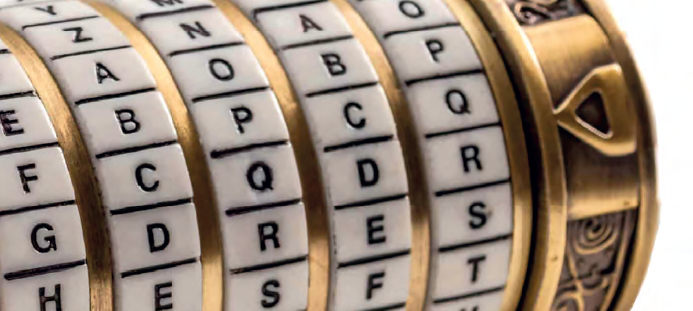Cryptology: Safeguarding Digital Communication


HISTORY OF CRYPTOLOGY
In a world increasingly connected digitally, cryptology, also known as the science of secure communication, plays a vital role in ensuring the confidentiality, integrity, and authenticity of information exchanged over digital networks. The history of cryptology can be traced back to ancient times, where various civilizations developed methods to protect sensitive information.
One of the earliest known examples of cryptology is the Caesar cipher, named after Julius Caesar. This simple substitution cipher involved shifting each letter in the alphabet by a fixed number of positions. While the Caesar cipher was relatively easy to break, it laid the foundation for more sophisticated encryption techniques.
Over the centuries, cryptology evolved, with advancements in mathematical and computational techniques leading to the development of more secure encryption algorithms. Notable milestones in the history of cryptology include the invention of the Enigma machine during World War II and the subsequent breaking of its codes by the Allied forces.
TERMINOLOGIES
Before delving deeper into the realm of cryptology, it is essential to understand some key terminologies:
Encryption and Decryption
Encryption is the process of converting plain text into ciphertext using an encryption algorithm and a secret key. This ensures that the information remains unreadable to unauthorized individuals. Decryption, on the other hand, is the reverse process of converting ciphertext back into plain text using a decryption algorithm and the corresponding secret key.
Digital Signature
A digital signature is a cryptographic technique used to verify the authenticity and integrity of digital documents or messages. It involves using a private key to generate a unique digital signature, which can be verified using the corresponding public key. Digital signatures play a crucial role in ensuring the non-repudiation of digital transactions.
Global Communication and E-commerce
In today's interconnected world, where global communication and e-commerce are thriving, the need for secure and private communication is more critical than ever. Cryptology provides the necessary tools and techniques to protect sensitive information transmitted over digital networks, enabling secure online transactions, confidential communication, and data protection.
IMPORTANCE OF CRYPTOLOGY IN PRESENT TIMES
The importance of cryptology in present times cannot be overstated. With the rise of cybersecurity threats and the increasing reliance on digital communication and transactions, the need for robust encryption and secure communication channels is paramount.
Rising Cybersecurity Threats
Cybersecurity threats, such as data breaches, identity theft, and ransomware attacks, pose significant risks to individuals, organizations, and governments. Without proper encryption and secure communication protocols, sensitive information can be intercepted, manipulated, or stolen by malicious actors. Cryptology provides the means to mitigate these risks and ensure the confidentiality and integrity of digital data.
By employing strong encryption algorithms and secure communication protocols, cryptology helps safeguard sensitive information from unauthorized access and ensures that only authorized individuals can decrypt and access the data.
THE ROLE OF CRYPTOLOGY IN DIGITAL INDIA
In the context of Digital India, the government's initiative to transform India into a digitally empowered society and knowledge economy, cryptology plays a crucial role in ensuring the security and privacy of digital transactions, e-governance initiatives, and online communication.
With the widespread adoption of digital technologies and the increasing digitization of government services, the need for secure communication channels and robust encryption mechanisms becomes paramount. Cryptology provides the necessary tools and techniques to protect sensitive information and enable secure digital interactions.
FUTURE OF CRYPTOLOGY
As technology continues to advance and new challenges arise, the field of cryptology will continue to evolve to meet the demands of an increasingly interconnected world. The future of cryptology holds promising developments in areas such as quantum cryptography, post-quantum cryptography, and secure multiparty computation.
Quantum cryptography leverages the principles of quantum mechanics to provide secure communication channels that are resistant to attacks from quantum computers. Post-quantum cryptography, on the other hand, focuses on developing encryption algorithms that can withstand attacks from both classical and quantum computers.
Secure multiparty computation aims to enable secure collaboration and computation among multiple parties without revealing their private inputs. This has applications in areas such as privacy-preserving data analysis, secure auctions, and collaborative machine learning.
In conclusion, cryptology plays a vital role in safeguarding digital communication in today's interconnected world. With the increasing cybersecurity threats and the need for secure online transactions, the importance of cryptology cannot be overstated. As technology advances, cryptology will continue to evolve, ensuring the confidentiality, integrity, and authenticity of information exchanged over digital networks.
